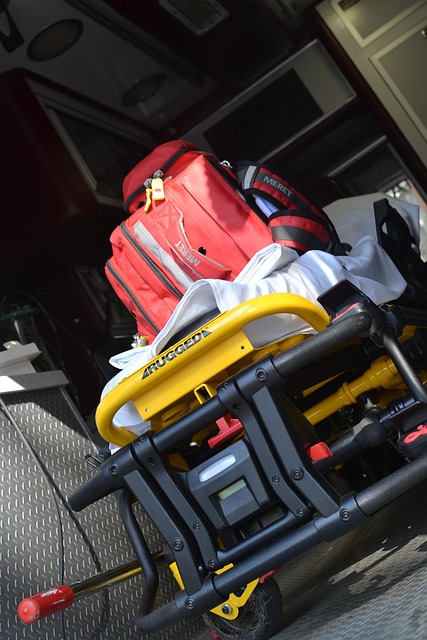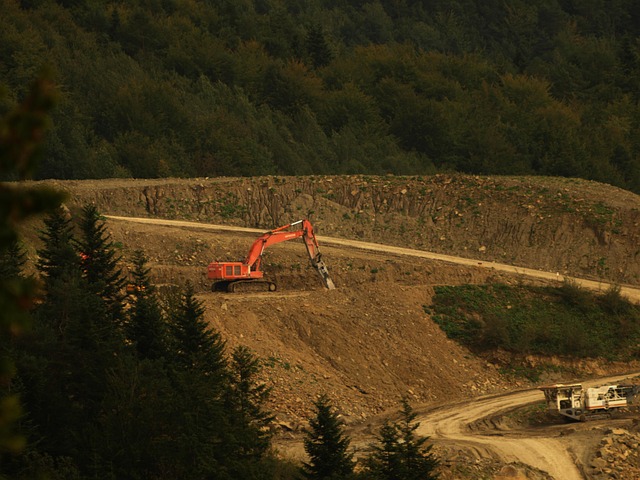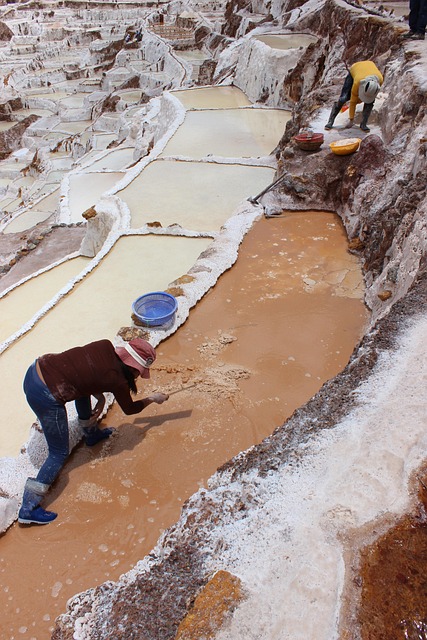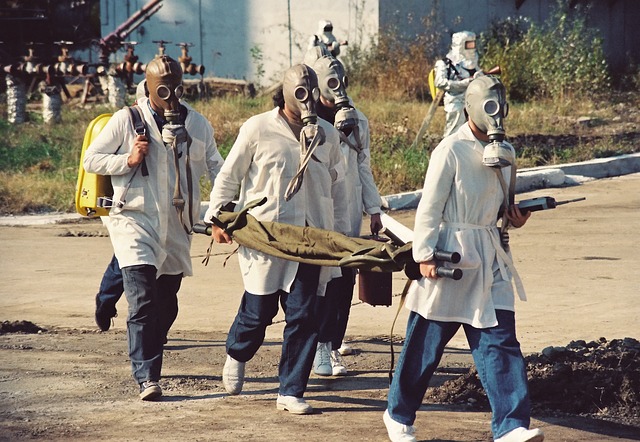Category: Emergency Water Extraction Fort Collins CO
Emergency Water Extraction Fort Collins CO: A Comprehensive Overview
Introduction
In the face of natural disasters, plumbing emergencies, or water damage events, immediate action is crucial for minimizing losses and ensuring property preservation. This is where Emergency Water Extraction Fort Collins CO steps into the spotlight as a critical service, offering swift response and advanced restoration techniques. This article aims to provide an in-depth exploration of this specialized field, its global impact, and the various facets that contribute to its significance. By delving into historical context, technological innovations, economic implications, and real-world applications, we will uncover the multifaceted world of emergency water extraction and its role in protecting communities across Fort Collins, CO, and potentially beyond.
Understanding Emergency Water Extraction Fort Collins CO: Unveiling the Basics
Definition: Emergency Water Extraction is a specialized service that involves the rapid and efficient removal of standing water from damaged areas after an emergency or disaster. It is a critical component of water damage restoration, focusing on mitigating the impact of excess moisture to prevent further deterioration of properties and structures.
Core Components:
-
Rapid Response: The primary goal is to act swiftly upon receiving an alert about flooding, pipe bursts, or any other water-related incidents. Every minute counts in preventing mold growth, structural damage, and secondary losses.
-
Advanced Equipment: Specialized equipment such as powerful pumps, vacuums, and dewatering systems are employed to extract large volumes of water efficiently. These tools are designed to handle various water sources, including clean water, grey water, and black water (sewage-contaminated).
-
Water Removal Techniques: Experts use methods like pumping, suction, and positive pressure to force water out of affected areas. This includes removing water from walls, floors, ceilings, and other hard-to-reach spaces.
-
Drying Processes: Once the water is extracted, advanced drying techniques are implemented to ensure all moisture is eliminated. This involves using dehumidifiers, air movers, and thermal imaging cameras to monitor and control humidity levels.
Historical Context:
Emergency water extraction has evolved significantly over time, driven by technological advancements and changing construction practices. In the past, traditional methods involved manual labor and simple tools like buckets and mops. However, with the rise of industrialization and natural disaster events, the need for faster and more efficient extraction techniques became apparent. The introduction of electric pumps in the early 20th century marked a significant milestone, allowing for quicker water removal. Further advancements led to the development of specialized equipment tailored for emergency response teams.
Global Impact and Trends
International Influence: Emergency Water Extraction Fort Collins CO is not limited to this specific location; its reach extends globally, especially in regions prone to natural disasters like floods, hurricanes, and earthquakes. International organizations and aid agencies play a crucial role in coordinating water extraction efforts during crisis situations, ensuring swift and effective response worldwide.
Regional Disparities: The demand for emergency water extraction varies across different regions due to geographical and climatic factors. Areas with frequent heavy rainfall, such as coastal cities, experience higher call volumes, while arid regions may have less frequent but equally critical water extraction needs.
Emerging Trends:
-
Green Technology: There is a growing trend towards environmentally friendly extraction methods, including the use of biodegradable materials for absorbency and eco-conscious equipment designs.
-
Remote Monitoring: Advanced sensors and IoT (Internet of Things) devices enable remote monitoring of moisture levels, allowing for proactive response and more efficient resource allocation.
-
Drones and Robotics: Unmanned aerial vehicles (UAVs) and robotic extraction systems are being explored for their potential in reaching hard-to-access areas and increasing efficiency during large-scale operations.
Economic Considerations
Market Dynamics: The emergency water extraction market is influenced by various factors, including the frequency of natural disasters, urbanization rates, and construction practices. According to a recent report by Market Research Future (MRFR), the global water damage restoration market (which includes extraction) is projected to reach USD 23.5 billion by 2027, growing at a CAGR of 6.8%.
Investment Patterns: Private equity firms and venture capitalists have shown interest in this sector, investing in innovative technologies and service expansions. This investment influx drives the development of specialized equipment and enhances response capabilities.
Economic Impact: In Fort Collins and similar cities, emergency water extraction services contribute to local economies by creating employment opportunities and generating revenue. The demand for these services can stimulate economic growth, particularly during post-disaster recovery periods.
Technological Advancements: Revolutionizing the Field
Innovations in Equipment:
-
High-Flow Pumps: Modern pumps offer increased capacity and efficiency, enabling faster water removal. For instance, the X-Tech pump series boasts a flow rate of up to 400 gallons per minute, ideal for large-scale extraction operations.
-
Smart Sensors: Moisture sensors with real-time data transmission capabilities allow technicians to assess water levels remotely, optimizing deployment and resource allocation.
-
Thermal Imaging Cameras: These tools identify hidden moisture sources by detecting temperature variations, ensuring no wet spots are overlooked during the drying process.
Data Analytics Integration: Advanced analytics platforms process vast amounts of data collected from sensors and drones, providing valuable insights for predictive modeling and improving response strategies.
Digital Communication Tools: Real-time communication platforms enhance coordination among emergency response teams, dispatchers, and affected residents, ensuring efficient information exchange during critical operations.
Policy and Regulation: Setting the Framework
Regulatory Bodies: In the United States, organizations like the Environmental Protection Agency (EPA) provide guidelines for water damage restoration practices, including extraction methods and disposal protocols. At the state level, departments of health and safety oversee licensing and certification processes for water extraction companies.
Licensing and Certification: Professional water extraction technicians must adhere to strict training and examination standards to obtain licenses. These regulations ensure a certain level of competence and expertise in handling hazardous materials and complex equipment.
Insurance and Liability: Policies addressing water damage restoration services are essential, covering both the service providers and property owners. They mitigate financial risks associated with water extraction, especially when dealing with contaminated water sources.
Challenges and Criticisms: Overcoming Barriers
Main Challenges:
-
Rapid Response Times: One of the primary challenges is reaching affected areas quickly, especially in densely populated urban centers or remote locations. Enhancing emergency response systems and community preparedness can help overcome this hurdle.
-
Moisture Monitoring: Accurately determining moisture levels throughout a structure is crucial for effective drying. Inadequate monitoring may lead to prolonged extraction, causing secondary damage.
-
Contaminated Water Disposal: Safe disposal of contaminated water (e.g., sewage) is an environmental concern, requiring adherence to strict regulations and proper treatment protocols.
Criticisms and Solutions:
-
Cost Concerns: Some critics argue that emergency water extraction services are overly expensive. To address this, providers can offer transparent pricing models and package options tailored to different needs, making the services more accessible.
-
Lack of Standardization: The absence of uniform industry standards has led to variations in service quality. Implementing comprehensive guidelines and certification programs can ensure consistent performance across the board.
-
Environmental Impact: Critics emphasize the environmental footprint of certain extraction methods and equipment. Adopting eco-friendly technologies and promoting sustainable practices can mitigate these concerns.
Case Studies: Real-World Success Stories
Case Study 1: Hurricane Maria Recovery in Puerto Rico (2017)
After Hurricane Maria, Fort Collins-based emergency response teams were deployed to Puerto Rico to assist with water extraction and restoration efforts. The team utilized advanced drying technologies and mobile command centers to coordinate their operations effectively. Their swift action helped prevent widespread mold growth and structural damage on the island. This case highlighted the importance of international collaboration and the versatility of modern water extraction techniques.
Case Study 2: The 2018 Wildfires in California
During the devastating wildfires in Northern California, local emergency response teams collaborated with national organizations to provide water extraction support for affected communities. Specialized equipment was employed to extract water from burned-out structures, helping residents rebuild and recover faster. This collaborative effort demonstrated the power of combined resources in large-scale disaster responses.
Future Prospects: Looking Ahead
Growth Areas:
-
Resilient Infrastructure: The focus on building resilient infrastructure will drive demand for advanced water extraction technologies, especially in flood-prone areas and coastal cities.
-
Remote and Rural Areas: As global populations shift towards remote locations, emergency services providers must adapt their response strategies to cater to these regions’ unique challenges.
Emerging Technologies:
-
AI-Assisted Damage Assessment: Artificial intelligence algorithms can analyze satellite imagery and drone footage to assess water damage and plan extraction efforts more efficiently.
-
3D Printing for Repairs: While not directly related to extraction, 3D printing technology has the potential to revolutionize structural repairs, reducing recovery times.
Strategic Considerations:
-
Collaboration and Data Sharing: Building global databases of emergency response strategies and best practices will enhance preparedness and coordination during crises.
-
Continuous Training: As technology evolves, continuous training programs ensure that technicians stay updated with the latest techniques and equipment.
Conclusion: A Crucial Service for Modern Times
Emergency Water Extraction Fort Collins CO is a dynamic and essential service that plays a pivotal role in mitigating water damage and its consequences. From historical roots to modern technological advancements, this field has evolved to meet the challenges of a changing world. As natural disasters become more frequent and intense, the demand for swift and efficient extraction will only grow.
The global impact, economic considerations, and technological innovations highlighted in this article underscore the critical importance of emergency water extraction. By addressing challenges, embracing new technologies, and fostering collaboration, service providers can enhance their effectiveness and contribute to resilient communities worldwide. As we look ahead, the future prospects for this industry present exciting opportunities to further revolutionize disaster response and recovery efforts.
FAQ Section: Addressing Common Concerns
Q: How do I know if my property needs emergency water extraction?
A: Signs include visible water damage, mold growth, musty odors, or signs of structural weakness caused by moisture. If you experience a plumbing emergency or flooding, immediate action is crucial.
Q: What should I expect during an emergency water extraction process?
A: Our team will assess the situation, set up extraction equipment, and begin removing standing water. We’ll communicate throughout the process, providing updates and ensuring your safety.
Q: How do you handle contaminated or septic water?
A: We use specialized equipment and protocols for safe disposal of contaminated water. Our technicians are trained to handle these situations, ensuring minimal environmental impact.
Q: Can emergency water extraction prevent mold growth?
A: Prompt action is key in preventing mold. Our efficient extraction methods significantly reduce moisture levels, hindering mold growth. However, thorough drying and decontamination are necessary for long-term protection.
Q: How do I choose a reputable emergency water extraction company?
A: Look for licensed and insured providers with positive customer reviews. Check their equipment, training, and experience. Reputable companies will offer transparent pricing and comprehensive services.
Emergency Water Extraction Experts in Fort Collins CO

In Fort Collins, CO, Reliable Water Restoration offers 24/7 emergency water extraction services usin…….
Quick Emergency Water Extraction Fort Collins CO: Prevent Mold Growth

In Fort Collins, CO, water emergencies require immediate action from Reliable Water Restoration (212…….
24/7 Emergency Water Extraction Fort Collins CO Experts

In case of floods in Fort Collins, CO, Reliable Water Restoration offers 24/7 emergency water extrac…….
Emergency Water Extraction & Rapid Drying in Fort Collins CO

In Fort Collins CO, after flooding, quick Emergency Water Extraction (EWE) with Reliable Water Resto…….
Expert Emergency Water Extraction Fort Collins CO Solutions

In cases of water damage or leaks in Fort Collins, CO, Reliable Water Restoration (2121 E Harmony Rd…….
Get Same-Day Quotes for Emergency Water Extraction Fort Collins CO

In Fort Collins, CO, water emergencies demand swift action from reliable experts like Reliable Water…….
Expert Emergency Water Extraction Fort Collins CO: Restore Your Home

In Fort Collins, CO, facing water damage or flooding, quick emergency water extraction is key by pro…….
Emergency Water Extraction Fort Collins CO: Mold Prevention Tips

Emergency Water Extraction Fort Collins CO: Swift action by professionals prevents mold growth after…….
Experience Swift Water Damage Repair in Fort Collins CO

In Fort Collins CO, face water damage or flooding with swift action. Contact Reliable Water Restorat…….
